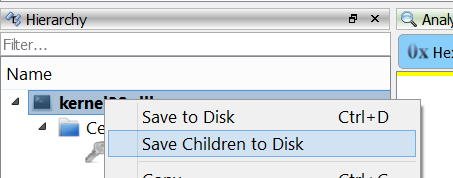We’re excited to release Cerbero Suite 8.1 and Cerbero Engine 5.1!
The main highlight of this release is that we have finally completed the documentation of the SDK. However, there are also some other news which we’ll be discussing in this post.
SDK Documentation
We have completed the documentation of the SDK, including built-in file formats, installable packages, and external modules.

This means that the entire SDK is now available for auto-completion in the Python editor. Every time you install a package that is exposed to the SDK, auto-completion becomes available for that package as well.
The SDK of Cerbero Suite and Cerbero Engine is unparalleled in scope and depth, offering a vast array of functionalities for developers. With the documentation, you can easily explore all the capabilities the SDK has to offer. Whether you’re writing plugins to automate tasks, analyzing complex file formats, or creating new tools, the SDK provides the necessary tools and resources.
The integrated Python editor in Cerbero Suite further enhances your development experience by providing features like syntax highlighting, hints and code completion. To get started, simply navigate to the SDK documentation website, where you’ll find extensive guides, API references, and examples. The documentation is organized to help both beginners and advanced users quickly find the information they need.
UEFI Firmware Images
We have released the UEFI Firmware Image Format package for all licenses of Cerbero Suite!
The package supports a variety of UEFI firmware image formats and, in addition to allowing you to inspect their structure, it automatically extracts embedded files.

The package usually identifies the UEFI firmware image format automatically. However, if the format is not automatically recognized, you will need to manually specify it when opening the file.

Windows Link Format SDK
We have exposed the Windows Link (.lnk) format to the SDK.
Here is an example of how to output the contents of a link file:
from Pro.Core import *
from Pro.Lnk import *
def parseLink(fname):
c = createContainerFromFile(fname)
if c.isNull():
return
obj = LnkObject()
if not obj.Load(c) or not obj.Initialize():
return
out = proTextStream()
obj.Dump(out)
print(out.buffer)
Save Child Objects to Disk Action
We have added a very useful action to the context menu of the hierarchy view: the ability to save child objects to disk.

This new feature allows you to export all child objects to disk with just a few clicks. To use this feature, simply right-click on a parent object in the hierarchy view and select “Save Children to Disk”. You will then be prompted to choose a destination folder where all the child objects will be saved.
This simplified workflow eliminates the need to manually extract each object individually, saving you time and effort. This feature is particularly useful when you need to process the child objects using external applications.
Improvements & Bug Fixes
As usual, each release contains improvements and bug fixes, but this release in particular offers a refined user experience, especially on Linux.
We hope you enjoy the new features and improvements in Cerbero Suite 8.1 and Cerbero Engine 5.1. As always, we welcome your feedback and look forward to seeing how you leverage the SDK and new functionalities in your projects.